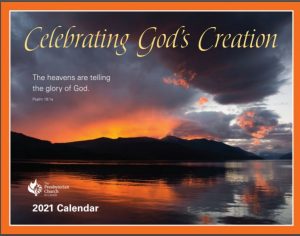Where do I begin? I was asked if I would write a blog for Faith Presbyterian Church, Fort McMurray, AB.
For those who know me – one of my sayings is, “The good Lord helps those who help themselves.” Soo… on that note, if I want God’s help, I had better get started.
Another of my sayings is, “Do onto others as you would have them do unto you,” so I need to do my part here to honour this request.
This year, 2020, has been a most challenging, anxious and frightful year; however, the CoVid-19 restrictions have brought about some very memorable and pleasant events in all our lives. Our immediate family times together have multiplied, we listen to each other more, we stay in touch with each other by phone, text, videos, facetime, and “drop–in visits, just because.”
Our gardens and lawns have flourished more than ever this year. WHY? We are giving time to these blessings that the good Lord has provided for us – care and attention is what they need and it gives back as we are enjoying the fresh air, watching the veggies and flowers grown under our watchful eyes.
Our lengthy walks in the trails have made us more conscious of the wild life, birds singing, meeting others on the trails and not to mention improving our physical well–being.
Why, even my golf game has improved because I am so grateful that I am able to be outdoors and doing an activity that I enjoy [Regardless of the score!].
All of these Blessings come from the Grace of God, which we can be so Thankful for. As I observe others around me [physically distanced] people have slowed down and, as the saying goes, “are taking time to smell the Roses.”
We have more time to listen to each other, to read, to meditate, and to look out over the backyard and “Give thanks “ where thanks is due.
Faith Church has survived many “ups and downs,” throughout its history here in Fort McMurray. The Church started out in a private home, then school classrooms, auditoriums, other church buildings, back to schools again. We have suffered through lack of space, lack of funds, lack of congregants but the good Lord has been with Faith Church all the way and helped us “see the light” and press on.
Faith Church has survived through 2 major floods [2013 and 2020] and a forest fire [2016] since our congregation has been there. Faith Church will survive this pandemic as well.
Beginning on March 22, 2020, Faith Church live-streamed its Sunday morning worship services from the lower level “Meeting Room” at the manse. As of October 18, 2020, Faith Church is doing in-house worship service and live-streaming at 1:00pm in the sanctuary at St. Thomas Anglican Church.
Faith Church may not have a permanent church building, but “The Church is the People” and God is with us wherever we gather. Thank the good Lord, we have a good Shepherd who follows the teachings of Jesus Christ and shares this with his flock. Amen to that.
The Disciples did not always travel “on easy street” and neither has Faith Church especially during this CoVid-19 era but we need to put our trust in God and allow God to be with us each day and night. Trials and tribulations will come to us but they will give us strength, improve our character, and our determination to keep ‘moving forward.” A good friend of mine would say, “When things are not what they should be, then take in to the Lord in prayer.”
We can thank God for his presence and his word that has the power to bring us wisdom, patience, peace, love and caring for each other and the world and our belief will see us through today and tomorrow.
Take care, stay safe and God Bless you.
Have a very Blessed Merry Christmas and good health and wellbeing for 2021.
Brenda Brewer
Clerk of Session
Faith Presbyterian Church
Ft. McMurray, AB

